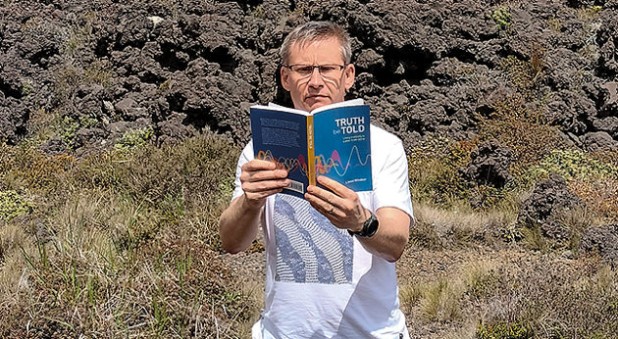When the Rev Dr Lionel Windsor set out to write a book on the importance of objective truth in a post-truth world, he never imagined it would be so controversial that a significant overseas government would want to censor it.
Yet before Truth be Told even hit bookstore shelves, it was proving why it was so necessary.
The book was inspired by a deep dive into Ephesians and a quote from Barack Obama. Dr Windsor, a lecturer at Moore Theological College, was struck by Mr Obama’s observations about a world lacking in objective truth.
“Here was someone speaking after 50 to 60 years of postmodern thinking, that’s taken over much of the universities and the way we talk and think, which has said there is no objective truth,” he says. “But now he’s saying when we get rid of objective truth, it’s a disaster!”
Diving into the way our culture perceives truth, the way postmodern thinking has shifted what we believe to be truth, and the rejection of objective truth, Dr Windsor wrote Truth be Told to hold out hope.
“What we have to offer the world is that truth is personal – not that it’s subjective, but that it’s found in a person: it’s found in God the Father and in Jesus Christ.”
We can’t print these things!
Throughout the writing process, Dr Windsor collected multiple stories from news sources and included many examples of truth-twisting from different countries around the world.
“As it went off for printing, Matthias Media [my publisher] got in touch to say, ‘The printer would like to change something in the book,’” Dr Windsor recalls. This was the first of many requests to edit and amend sections of Truth be Told, both Dr Windsor’s own words and quotes from news sources, that were upsetting a major overseas government.
“At that point I said, ‘We can’t make any substantial changes and misrepresent quotations for political purposes. We can’t really make any changes anyway – it’s a book about truth!’ To write a book about truth and then change things because a government didn’t want us to say those things would go against the grain of what we were trying to write.”
The search for a new printer in a different country commenced, with the book’s publishing schedule delayed as a result. Working with a new printer meant establishing new processes and smoothing things out as they went, which pushed the release date back by six months.
“What’s completely ironic is that what I was saying [in the book] is that this foreign government censors things, and that’s an example of the truth problem,” Dr Windsor says. “The foreign government then said to me, ‘You’re not allowed to say that!’. The irony is they censored me talking about censorship.
“I’m just a minister and lecturer in Sydney. All I’m doing is teaching people to be ministers of the gospel, and I’ve written a book as part of that. But suddenly, here is a foreign government saying, you’re not allowed to say these things.”
We’ve lost objective truth, but we haven’t lost hope
The main thrust of the book isn’t about foreign governments, although they are mentioned as examples.
“We talk a lot about truth problems in the Western world,” Dr Windsor says. “We’ve lost our idea of objective truth… [we] think truth is subjective and we look inside ourselves for truth. But people see this is hopeless; we need something outside of ourselves – objective truth.
“What we have as Christians is the gospel, the truth that transforms and changes us. What I want is Christians to hold on to the truth and live out the truth against the current of the world.
“As Christians, we have this personal truth in Jesus. We hold onto it, hold it out to others, and are committed to living lives of truth and faithfulness. Printing events have reinforced that this is not just in the West, but it is something Christians can offer the entire world.”






















